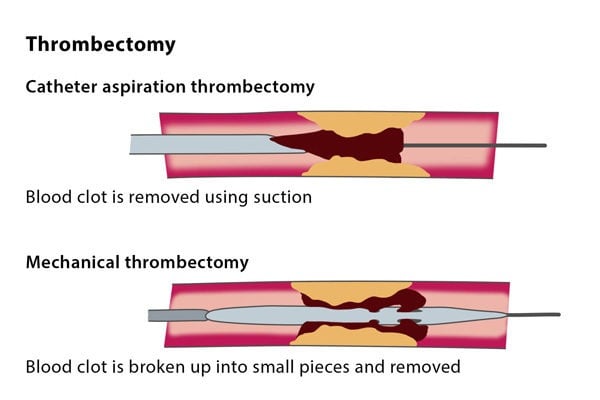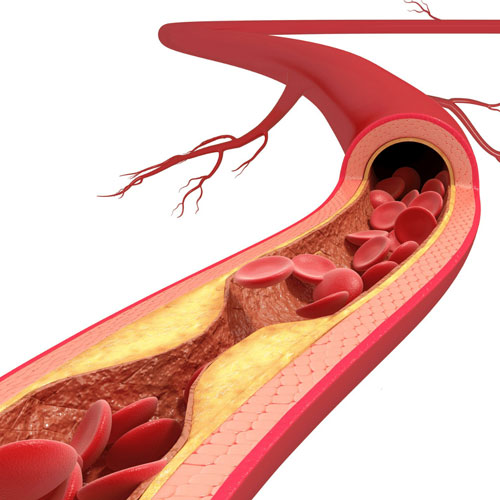Thrombectomy Risks:
1- Bleeding:
- Common risk, especially at catheter insertion site. Increased risk for those on anticoagulant medications.
2- Vascular Injury:
- Navigating catheter may cause injury to blood vessels, leading to bleeding or complications.
3- Infection:
- Rare but possible, especially at catheter insertion site. Strict sterile techniques are employed.
4- Allergic Reaction:
- Low risk of reaction to contrast agents used in imaging. Precautions are taken to minimize this risk.
5- Clot Fragmentation:
- Clot breakup during thrombectomy may result in smaller fragments, posing a potential risk of blockages.
6- Neurological Complications:
- In brain-related procedures, there’s a risk of complications like stroke. Monitoring aims to minimize such risks.
7- Reperfusion Injury:
- Restoring blood flow may cause reperfusion injury, especially in large vessel occlusions.
8- Post-Thrombectomy Syndrome:
- Some may experience inflammation and pain despite successful procedures, possibly requiring additional treatment.
Patients should discuss these risks with healthcare providers to make informed decisions based on their specific medical conditions and overall health. Providers take precautions to minimize risks during thrombectomy.
Experience expert DVT treatment in Mumbai with Dr. Kunal Arora. Your path to vascular health begins here. Schedule your consultation for personalized care and effective DVT treatment. Take the first step towards a healthier tomorrow with Dr. Kunal Arora.




